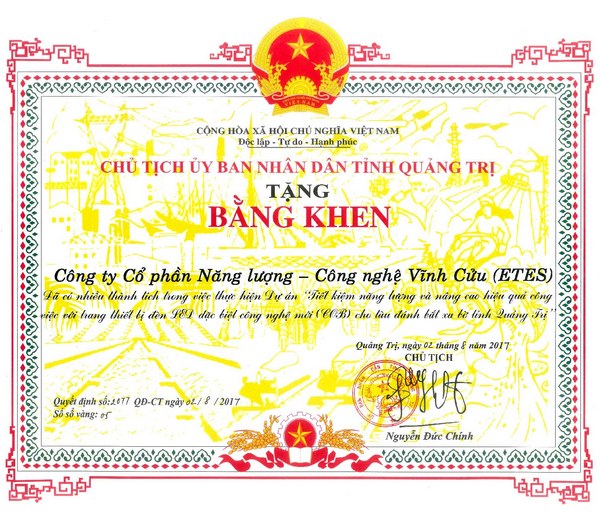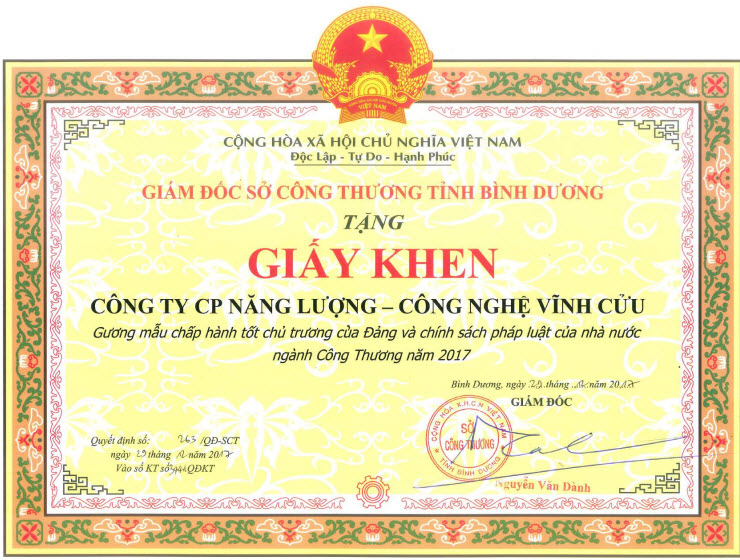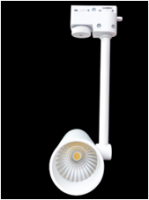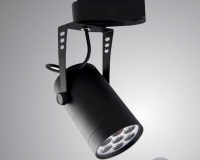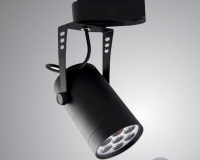The 40th anniversary of National Union in Quang Tri Province
Top News
Mr. Nguyen Quan Chinh, Vice Chairman, People's Committee of Quang Tri Province came to visit the site of LED installation.
SUNday - 24/08/2014 23:03
- Viewed: 5033
Solutions to effectively implement the Energy Efficiency Labeling Program
On August 1st, 2014, in Da Nang, the General Department of Energy, Ministry of Industry and Trade held a seminar “The Dissemination of the Energy Efficiency Labeling Program”, chaired by Mr. Trinh Quoc Vu, the Director General of the Science Technology and Energy Conservation Department, General Department of Energy, MOIT. 
Mr. Trinh Quoc Vu, Head of the ministry’s Sciences, Technology and Energy Saving Department, General Department of Energy, MOIT
Attendants included delegates from Departments of Industry and Trade, the Energy Conservation Centers and the Market Surveillance Units of Ha Noi, Ho Chi Minh City, Can Tho, Da Nang, Quang Tri; experts and staff of the Barrier Removal to the Cost-Effective Development and Implementation of Energy Efficiency Standards and Labeling (BRESL) project, which is sponsored by the UNDP, GEF and MOIT.
At the seminar, the delegates were presented with how the Energy Efficiency Labeling Program had been implemented; the legal documents on energy labels and the schedule for energy efficiency labeling and the application of regulations prohibiting the import and manufacture of equipment with the energy performance lower than the Minimum Energy Performance Standards (MEPS). 
Mr. Hoang Viet Dung, expert from BRESL project, making a presentation about Energy Efficiency Labeling Program
Among the legal documents on energy labels, the seminar specially showed concern to the new points in the Decree No. 134/2013/ND-CP detailing on administrative sanctions in the field of electricity, hydroelectric dam safety and energy conservation and efficiency. The Decree gives a specific definition of the violations of energy efficiency labeling and prescribes the sanctioning levels of such acts and the competence of the functional units of all levels. This is one of the important legal bases for the locals to supervise, handle, adjust and raise the awareness to comply with the law on energy efficiency labeling in the future.
According to the statistics from 2012 to 6/2014, 634 corporations (manufacturers, distributors) were involved in the Energy Efficiency Labeling Program with 6,215 products labeled, in which those with the largest number are electric fan (1,585), rice cooker (1,354), air conditioner (863) and refrigerator (609). This data showed a rise over time, which means the awareness to comply with the Law on energy conservation and efficiency in general and the regulations on energy efficiency labeling in particular has positive movements and is being improved.
At the seminar, Mr. Mark Ellis, an expert from VEESL project presented the results of the survey on energy efficiency labeling in Vietnam. The survey was conducted from the end of 2013 in Ho Chi Minh City, Ha Noi, Quang Tri and Can Tho. 263 retailers with 5,375 products in the compulsory labeled group being picked randomly. The products included: air conditioner, washing machine, rice cooker and electric fan.

It is highly agreed at the seminar to enhance public communication about energy efficiency labeling
The survey was conducted independently, without the introduction of functional agencies and the prior notice for shopkeepers in order to ensure objectivity. The results gave the comparative figures on the label rate of the examined products, locals and origins.
According to Mr. Mark Ellis, the data from the survey will not be used to apply sanctions, but to draw an overall picture about labeled products in the market. Based on that result, the unit conducting the survey prepared a report summing up the findings, as advice for MOIT to carry out the next steps in market investigation and survey in order to have appropriate policies.
One of the solutions that Mr. Mark Ellis brought up and was highly agreed at the seminar is to enhance public communication about energy efficiency labeling and select information to announce about the labeling reality and violations so that consumers acknowledge and proactively buy energy saving products.
He also suggested connecting more strictly with suppliers and sharing the results of the survey with their own products and recommended improvement in the near future. These moves are to help suppliers know that the government controls and monitors closely any change, and are one of the important motivations reminding suppliers to adjust themselves before the sanctions are executed.
About the upcoming solutions and plans, the delegates at the seminar carefully discussed from many angles. According to Mr. Trinh Quoc Vu, MOIT will collect, sum up and develop a detailed work plan on energy efficiency labeling for the management to promulgate appropriate regulations and mechanisms so as to effectively implement the Energy Efficiency Labeling Program in the future.

Mr. Trinh Quoc Vu, Head of the ministry’s Sciences, Technology and Energy Saving Department, General Department of Energy, MOIT
Attendants included delegates from Departments of Industry and Trade, the Energy Conservation Centers and the Market Surveillance Units of Ha Noi, Ho Chi Minh City, Can Tho, Da Nang, Quang Tri; experts and staff of the Barrier Removal to the Cost-Effective Development and Implementation of Energy Efficiency Standards and Labeling (BRESL) project, which is sponsored by the UNDP, GEF and MOIT.
At the seminar, the delegates were presented with how the Energy Efficiency Labeling Program had been implemented; the legal documents on energy labels and the schedule for energy efficiency labeling and the application of regulations prohibiting the import and manufacture of equipment with the energy performance lower than the Minimum Energy Performance Standards (MEPS).

Mr. Hoang Viet Dung, expert from BRESL project, making a presentation about Energy Efficiency Labeling Program
| Schedule to compulsorily implement energy efficiency labeling: From 7/2013: Group of household appliances: straight fluorescent tube, compact fluorescent light bulb, electromagnetic and electronic ballast for fluorescent lamp, household washing machine, air conditioner, rice cooker, electric fan. Group of industrial equipment: three-phase distribution transformer, electric motor. From 2014: Refrigerator, front-loading washing machine, television. From 2015: Compulsory for means of transportation 7-seater cars and smaller ones. |
According to the statistics from 2012 to 6/2014, 634 corporations (manufacturers, distributors) were involved in the Energy Efficiency Labeling Program with 6,215 products labeled, in which those with the largest number are electric fan (1,585), rice cooker (1,354), air conditioner (863) and refrigerator (609). This data showed a rise over time, which means the awareness to comply with the Law on energy conservation and efficiency in general and the regulations on energy efficiency labeling in particular has positive movements and is being improved.
At the seminar, Mr. Mark Ellis, an expert from VEESL project presented the results of the survey on energy efficiency labeling in Vietnam. The survey was conducted from the end of 2013 in Ho Chi Minh City, Ha Noi, Quang Tri and Can Tho. 263 retailers with 5,375 products in the compulsory labeled group being picked randomly. The products included: air conditioner, washing machine, rice cooker and electric fan.

It is highly agreed at the seminar to enhance public communication about energy efficiency labeling
| Till 6/2014, 634 corporations (manufacturers, distributors) involved in the Energy Efficiency Labeling Program with 6,215 products labeled, in which those with the largest number are electric fan (1,585), rice cooker (1,354), air conditioner (863) and refrigerator (609) |
According to Mr. Mark Ellis, the data from the survey will not be used to apply sanctions, but to draw an overall picture about labeled products in the market. Based on that result, the unit conducting the survey prepared a report summing up the findings, as advice for MOIT to carry out the next steps in market investigation and survey in order to have appropriate policies.
One of the solutions that Mr. Mark Ellis brought up and was highly agreed at the seminar is to enhance public communication about energy efficiency labeling and select information to announce about the labeling reality and violations so that consumers acknowledge and proactively buy energy saving products.
He also suggested connecting more strictly with suppliers and sharing the results of the survey with their own products and recommended improvement in the near future. These moves are to help suppliers know that the government controls and monitors closely any change, and are one of the important motivations reminding suppliers to adjust themselves before the sanctions are executed.
About the upcoming solutions and plans, the delegates at the seminar carefully discussed from many angles. According to Mr. Trinh Quoc Vu, MOIT will collect, sum up and develop a detailed work plan on energy efficiency labeling for the management to promulgate appropriate regulations and mechanisms so as to effectively implement the Energy Efficiency Labeling Program in the future.
By Huong Nguyen
Source: tietkiemnangluong.com.vn
Newer articles
- Promoting civil nuclear development cooperation (06/09/2014)
- The UK may become the largest solar market in Europe by the end of this year (06/09/2014)
- Vinacomin focuses investment on power production (06/09/2014)
- Batteryless cardiac pacemaker is based on automatic wristwatch: Powered by heart motion (04/09/2014)
- EVN HCMC improves energy efficiency (27/08/2014)
Older articles
- Clarifying nuclear power workforce demand (20/08/2014)
- Gasification of oil palm biomass to produce clean producer gas for heat, power generation (16/08/2014)
- Temporary tattoo biobatteries produce power from sweat (16/08/2014)
- Old power plants put India in 11th slot in energy efficiency (12/08/2014)
- Renewable energy heads to 28.5% in Germany (06/08/2014)
Devices
Consultancy
Energy Audit
ONLINE
(0909.901.045)
Energy Audit
ONLINE
(0909.901.045)
| MOU SIGNING CEREMONY ABOUT SPECIAL LED WITH COB TECHNOLOGY FOR FISHING SHIPS BETWEEN QUANG TRI PPC AND NEDO |



